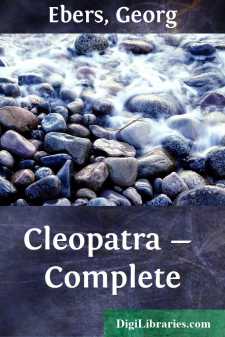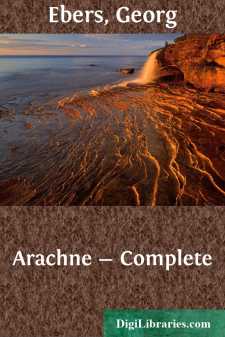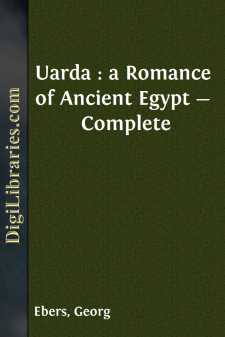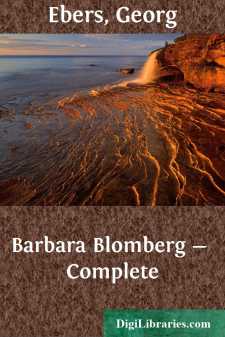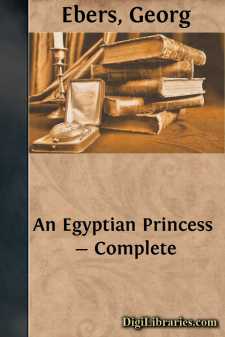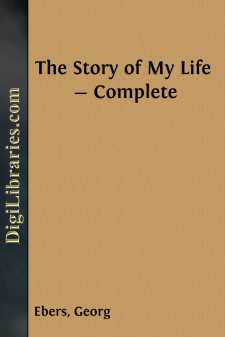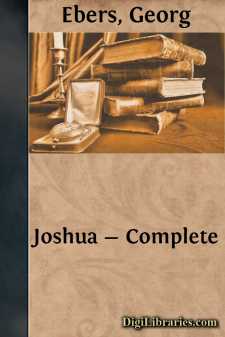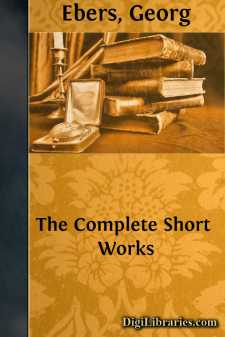Categories
- Antiques & Collectibles 13
- Architecture 36
- Art 48
- Bibles 22
- Biography & Autobiography 813
- Body, Mind & Spirit 142
- Business & Economics 28
- Children's Books 17
- Children's Fiction 14
- Computers 4
- Cooking 94
- Crafts & Hobbies 4
- Drama 346
- Education 46
- Family & Relationships 57
- Fiction 11829
- Games 19
- Gardening 17
- Health & Fitness 34
- History 1377
- House & Home 1
- Humor 147
- Juvenile Fiction 1873
- Juvenile Nonfiction 202
- Language Arts & Disciplines 88
- Law 16
- Literary Collections 686
- Literary Criticism 179
- Mathematics 13
- Medical 41
- Music 40
- Nature 179
- Non-Classifiable 1768
- Performing Arts 7
- Periodicals 1453
- Philosophy 64
- Photography 2
- Poetry 896
- Political Science 203
- Psychology 42
- Reference 154
- Religion 513
- Science 126
- Self-Help 84
- Social Science 81
- Sports & Recreation 34
- Study Aids 3
- Technology & Engineering 59
- Transportation 23
- Travel 463
- True Crime 29
Cleopatra - Complete
by: Georg Ebers
Categories:
Description:
Excerpt
CHAPTER I.
Gorgias, the architect, had learned to bear the scorching sunbeams of the Egyptian noonday. Though not yet thirty, he had directed—first as his late father's assistant and afterwards as his successor—the construction of the huge buildings erected by Cleopatra in Alexandria.
Now he was overwhelmed with commissions; yet he had come hither ere the hours of work were over, merely to oblige a youth who had barely passed the confines of boyhood.
True, the person for whom he made this sacrifice was Caesarion, the son whom Cleopatra had given to Julius Caesar. Antony had honoured him with the proud title of "King of kings"; yet he was permitted neither to rule nor even to issue orders, for his mother kept him aloof from affairs of state, and he himself had no desire to hold the sceptre.
Gorgias had granted his wish the more readily, because it was apparent that he wanted to speak to him in private, though he had not the least idea what Caesarion desired to confide, and, under any circumstances, he could give him only a brief interview. The fleet, at whose head the Queen had set sail, with Mark Antony, for Greece, must have already met Octavianus's galleys, and doubtless a battle wherein the destiny of the world was decided had also been fought upon the land, Gorgias believed that the victory would fall to Antony and the Queen, and wished the noble pair success with his whole heart. He was even obliged to act as if the battle had been already determined in their favour, for the architectural preparations for the reception of the conquerors were entrusted to his charge, and that very day must witness the decision of the location of the colossal statues which represented Antony hand in hand with his royal love.
The epitrop Mardion, a eunuch, who as Regent, represented Cleopatra; and Zeno, the Keeper of the Seal, who rarely opposed him, wished to have the piece of sculpture erected in a different place from the one he favoured. The principal objection to the choice made by the powerful head of the government was that it had fallen on land owned by a private individual. This might lead to difficulties, and Gorgias opposed it. As an artist, too, he did not approve Mardion's plan; for though, on Didymus's land, the statues would have faced the sea, which the Regent and the Keeper of the Seal regarded as very important, no fitting background could have been obtained.
At any rate, the architect could now avail himself of Caesarion's invitation to overlook from the appointed place of meeting—the lofty steps of the Temple of Isis—the Bruchium, and seek the best site for the twin statues. He was anxious to select the most suitable one; the master who had created this work of art had been his friend, and had closed his eyes in death shortly after its completion.
The sanctuary whence Gorgias commenced his survey was in one of the fairest portions of the Bruchium, the Alexandrian quarter, where stood the royal palace with its extensive annexes, the finest temples—except the Serapeum, situated in another part of the city-and the largest theatres; the Forum invited the council of Macedonian citizens to its assemblies, and the Museum afforded a resort for the scholars....


